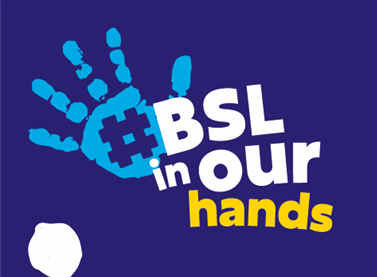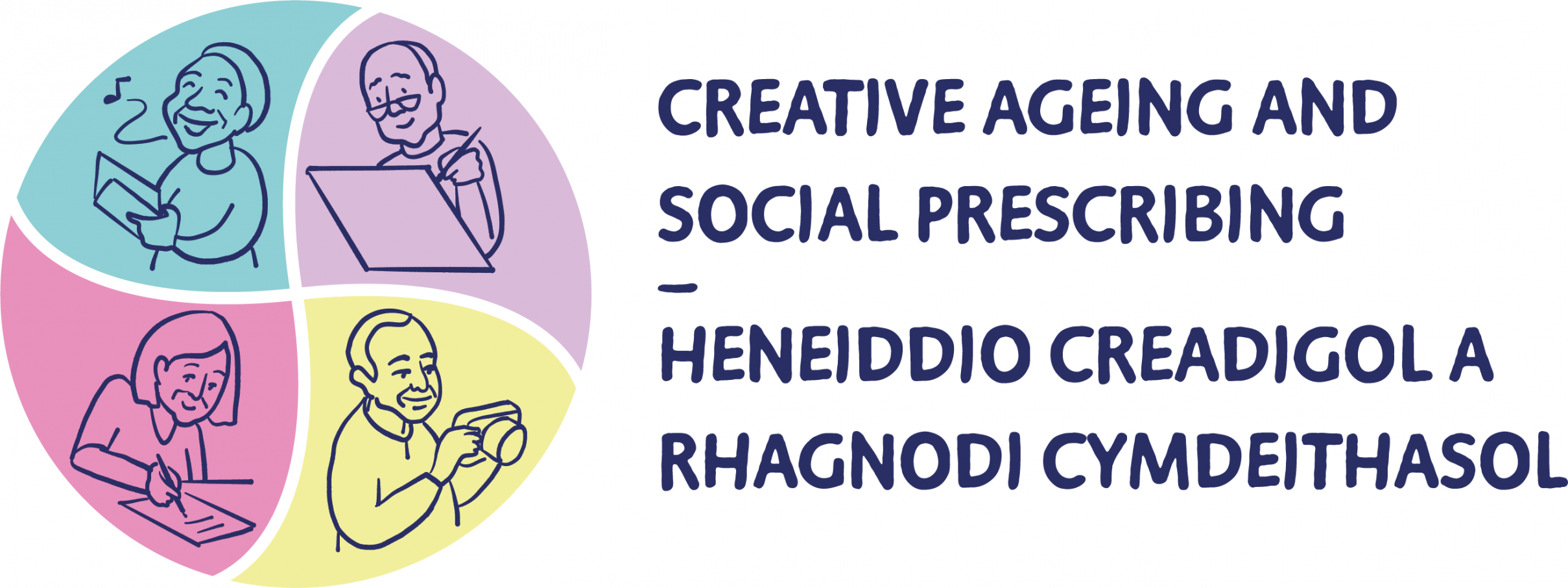Deaf BSL community access needs for creative and cultural activity participation – in conversation with Martin Griffiths
25 January 2024
In this blog piece, Martin Griffiths, who is deafblind and the British Deaf Association Wales Manager, reflects on the Deaf BSL community access needs to participate fully in the creative and cultural sector.
Access needs for the Deaf BSL community
Deaf people using BSL are often labelled as disabled and meet the disability criteria laid out in the Equality Act 2010. However, many Deaf people prefer to see themselves as a linguistic minority. They argue that full participation in society is blocked only by lack of access to information and communication in BSL.
Many Deaf adults have limited ability to speak, read and understand English. This is because of an audist approach to education policy in which Deaf children were not taught BSL and schooled in that language. Many argue that Deaf children who learn BSL and are taught in that language will be more likely to develop better English skills and improve educational attainment. That is why the BDA launched ‘BSL in Our Hands’ during Sign language Week calling on the Government to invest in free access to BSL for all families of deaf children.
In Wales, there is a national shortage of BSL interpreters. Some interpreters have retired, and others are reducing hours as they approach retirement age. Few new people are coming through to replace them and to increase supply.
Not all interpreters are suitable for performance interpreting so this area of supply and that needs to be addressed.
BSL Interpreters have often taken responsibility for promoting accessible shows. This is their response to poor advertising of access provision. One interpreter Anthony Evans created a Trello board to list shows with interpreter access and to provide names of interpreters as some Deaf people have preferences in who supplies interpretation.
Other interpreters often use social media to inform Deaf people of accessible events. The venues and promotors should be taking this responsibility.
Deaf people would benefit from faster and more visible information about available access so they can book tickets and get a suitable seat.
There is also an issue in theatres, cinemas, and other arts that the accessible shows may be at times that Deaf people are working or clash with another accessible event. For example, in 2023 there were two BSL accessible events on the same date, time and in the same area. As the access was one date only, Deaf people had to make a choice of which to miss. Non deaf people will have multiple opportunities to attend an event.
Deaf people would like more choice of what is accessible. In 2023, a Deaf lady attended an accessible pantomime. She saw two shows being advertised that she wanted to see but neither were accessible at all. She was extremely disappointed. The theatre advised that the production companies decide which shows should be accessible and when. This highlights that there is no equality but loopholes in the Equality Act make it hard to seek legal redress.
Similarly, some shows have BSL on one night and captions on another. This splits the Deaf audience.
It would help if mailing listed for only accessible shows were available. The website YourLocalCinema provides lists of captioned films in a specific area. Something like that would be good for other events like Theatre.
Cultural preferences
Many Deaf people do watch TV and films with captions but often do not understand the dialogue. For this reason, Deaf people may struggle to enjoy comedy, which is based in sarcasm, surrealism, wordplay, satire, etc. So, a Deaf audience may be less responsive to comedies like Blackadder, Monty Python or The Mighty Boosh.
Deaf people are often more responsive to visual and slapstick humour. However, many Deaf people do want access to a variety of creative output.
Deaf people have their own unique culture which includes Deaf humour for example. There are many well-known Deaf artists including actors, dancers, comedians, etc. that are enjoyed by Deaf audiences.
BSL representation in media
Rose Ayling Ellis, a Deaf Actor whose first language is BSL, became well known when she joined the cast of EastEnders. She then went on to appear in, and win, Strictly Come Dancing. This led to a huge interest in BSL with many people signing up to BSL classes as a result.
The long running BBC serial ‘Casualty’ had an episode featuring Deaf BSL using actor Sophie Stone who played the mother of a deaf nurse. A Deaf creative named Charlie Swinbourne (founder off Limping Chicken) wrote an episode.
In recent years Deaf people have featured in a variety of programmes on mainstream TV further increasing the visibility of Deaf people and BSL.
Chris Fonseca a Deaf hip hop dancer has featured on mainstream TV in a BBC dance competition and in adverts. Chris came to Cardiff to do a Hip Hop workshop. Interestingly, many of those attending this were older adults who had ‘heard’ about the event through contacts in the Deaf Community.
Deaf People have enjoyed signed songs and some Deaf sign song artists have appeared in front of mainstream audiences and been well received. Fletch for example has appeared at Cardiff Pride on the main stage. She has also supported some famous mainstream artists such as Ed Sheeran and Ronan Keating.
This increased visibility has led to many creatives recognising the beauty of BSL. Some productions have found ways to integrate BSL into their productions. This means the Deaf signer or BSL interpreter appears to be a character in the production.
Deaf aspirations for cultural participation
Deaf people have acquired a thirst to become more involved in arts & culture.
Recent South Wales projects such as Our Visual World, Hear We Are and Deaf Together (now Deaf Gathering) have brought together established Deaf artists and inspired new ones.
Many Deaf people now aspire to express themselves through creativity as Deaf actors, scriptwriters, producers, costume makers, etc.
Deaf people would like to see greater representation in arts & culture. Our Visual World has led to more cultural opportunities for Deaf people to lead BSL tours of historical places and arts facilities.
There is a worry that the current economic climate may reduce funding opportunities in arts & culture and slow down the progress made in recent years.
